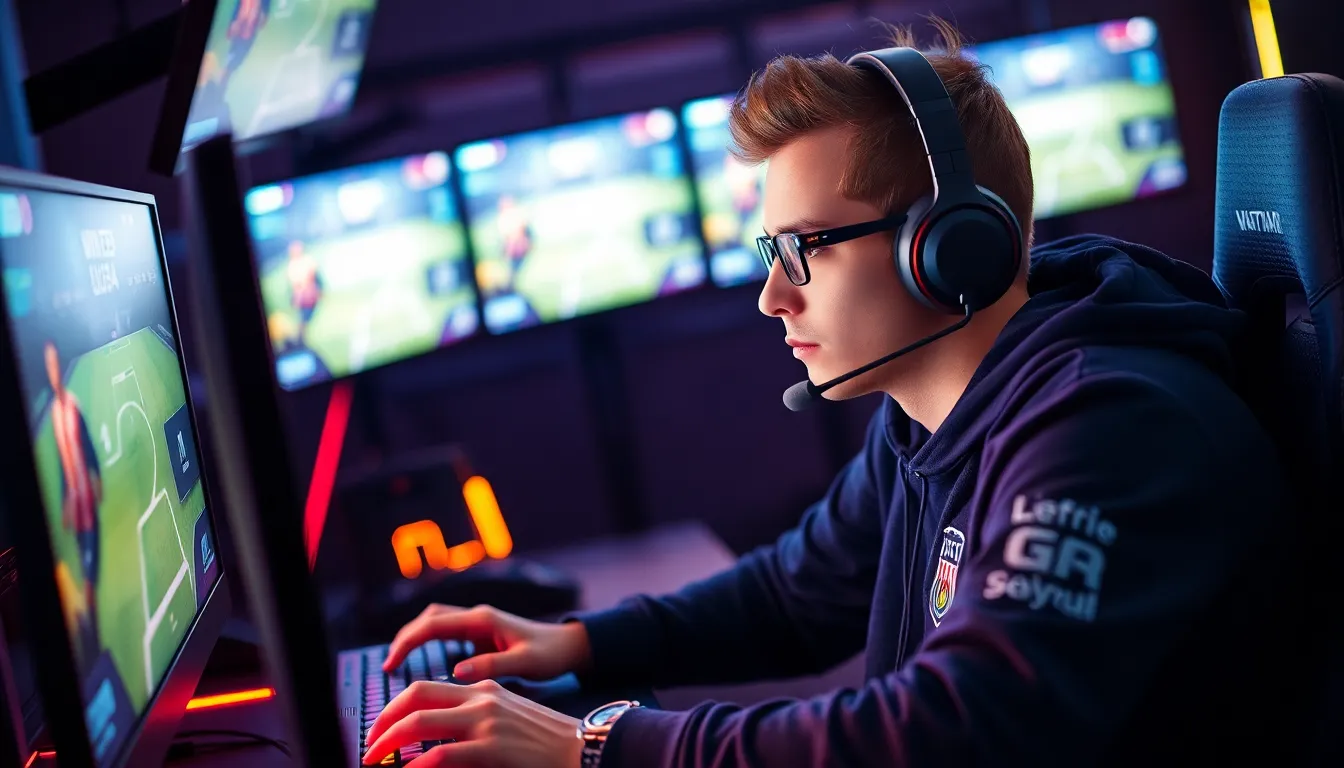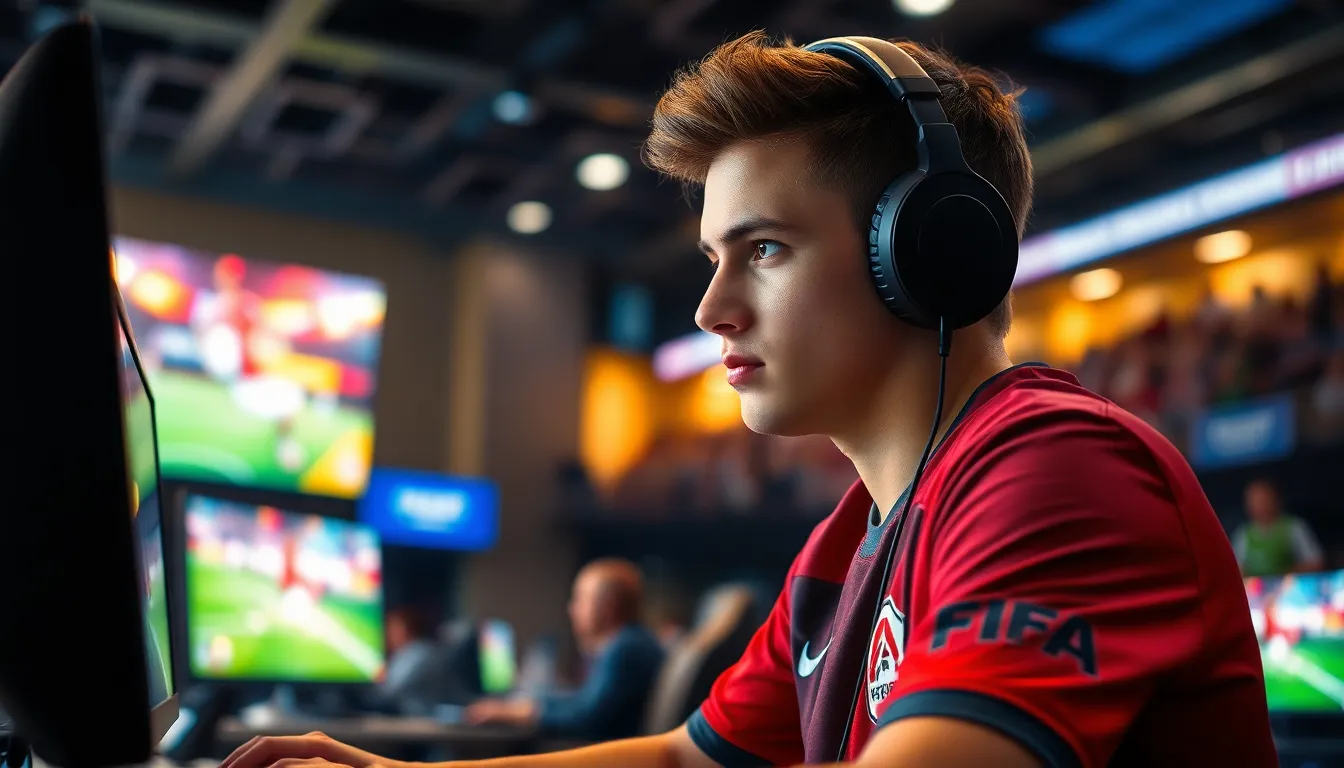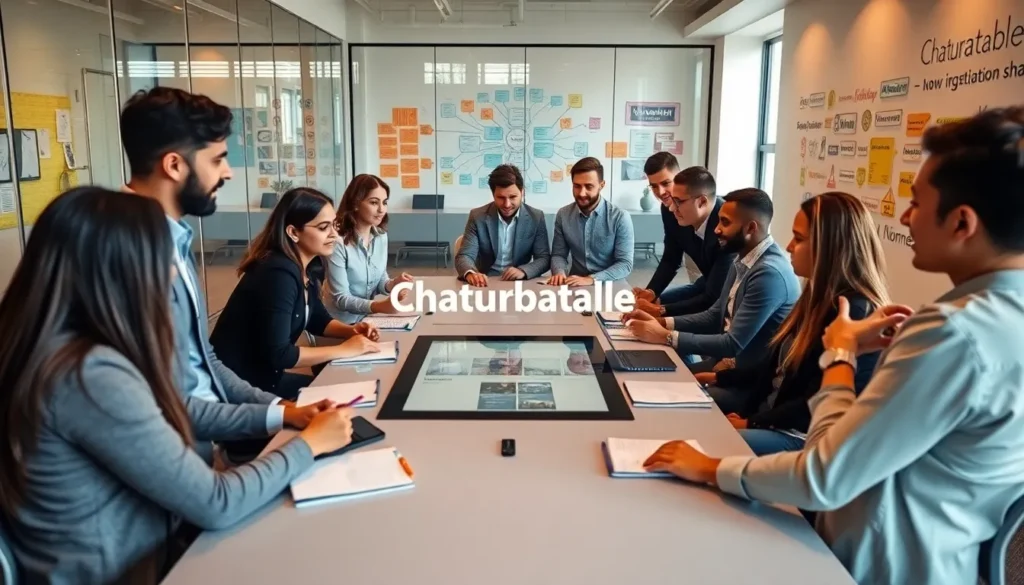Table of Contents
ToggleIn the fast-paced world of FIFA esports, contracts are the real MVPs. They’re not just pieces of paper; they’re the golden tickets that can turn a casual gamer into a household name. Picture this: one moment you’re grinding in your living room, and the next, you’re signing deals that could rival a Hollywood blockbuster. Exciting, right?
Overview of FIFA Esports Contracts
FIFA esports contracts play a crucial role in shaping a player’s career within the competitive gaming landscape. Agreements typically outline essential components such as compensation, duration, and obligations of both parties. Players can access substantial financial support through these contracts, which often include base salaries and performance incentives.
Organizations interested in signing players look for individuals with proven skills, teamwork abilities, and marketability. These attributes enhance a player’s appeal by attracting sponsorships and increasing fan engagement. Contract terms may vary significantly, from short-term agreements focused on a single tournament to longer commitments spanning multiple seasons.
Legal protections also come into play in these contracts, ensuring clarity regarding intellectual property rights, image usage, and dispute resolution. Players benefit from these legal frameworks, as they create an environment of stability and security. As the esports industry evolves, contracts increasingly include clauses addressing streaming rights, social media presence, and content creation expectations.
Market trends influence contract negotiations. Organizations often assess a player’s potential for growth and the likelihood of achieving success in tournaments, impacting the financial terms offered. In recent years, some contracts have reached multi-million dollar valuations, showcasing the rising importance of competitive gaming.
Navigating the intricacies of these contracts requires expertise, particularly for younger players. Consulting with legal professionals can help them understand their rights and obligations, ensuring their best interests are represented. As FIFA esports continues to gain prominence, the standardization of contracts may emerge, affecting how players and organizations interact in this dynamic field.
Key Components of FIFA Esports Contracts

FIFA esports contracts contain several critical elements that shape the competitive landscape for players. These contracts address key rights, obligations, and participation requirements fundamental to a player’s career progression.
Player Rights and Obligations
Players possess essential rights outlined within their contracts. Real-time compensation details, including base salaries and performance bonuses, establish financial security. Obligations outlined in the agreement include fulfilling training commitments and adhering to organizational guidelines. Participation in promotional events also forms part of a player’s responsibilities. Regulations surrounding image rights clarify how players can utilize their likeness in marketing efforts. Ultimately, understanding these rights and obligations ensures players navigate their careers while maintaining professional integrity.
Tournament Participation Requirements
Specific criteria dictate a player’s eligibility for tournaments. Contracts may specify minimum performance standards or gameplay metrics that players must meet. Participation in practice sessions and team meetings often becomes mandatory, fostering a cohesive team dynamic. Additionally, timelines for registrations and commitment to attend tournaments impact a player’s schedule. Clear guidelines about behavior and conduct during events also hold weight in the agreement. Recognizing these requirements aids players in fulfilling expectations and achieving competitive success.
Financial Aspects of FIFA Esports Contracts
FIFA esports contracts play a vital role in establishing financial security for players. Understanding salary structures and potential bonuses is essential for aspiring professionals.
Salary Structures and Bonuses
Salaries within FIFA esports contracts typically consist of a base salary, reflecting a player’s skill and marketability. Players often negotiate terms that align with their tournament performance and fan engagement. Furthermore, many contracts include performance bonuses tied to winning tournaments or meeting specific goals. Organizations often implement structured tiers for bonuses, rewarding consistent high-level play with increasingly lucrative incentives. The range for base salaries can vary widely, sometimes reaching six figures annually for top-tier players. Players need to assess their worth accurately, which can result in significant financial benefits.
Sponsorship and Endorsement Deals
Sponsorship deals frequently accompany FIFA esports contracts, providing players with additional financial gains. Major brands seek partnerships with successful players to leverage their influence and market reach. Endorsements can come from various industries, including gaming peripherals, energy drinks, and apparel. Contracts often stipulate exclusive rights to represent these brands during streams and tournaments. The potential for sponsorship revenue can significantly enhance a player’s overall earnings, sometimes surpassing base salaries. Players must actively engage with their fan base and maintain a strong online presence to attract these lucrative opportunities. Understanding the intricacies of these deals is crucial for maximizing financial potential in the esports landscape.
Legal Considerations in FIFA Esports Contracts
Legal aspects of FIFA esports contracts play a significant role in shaping player experiences and futures. Understanding these facets ensures players are equipped to handle potential disputes and intellectual property matters effectively.
Conflict Resolution and Arbitration
Disputes may arise in esports contracts, necessitating clear conflict resolution mechanisms. Many agreements include arbitration clauses, detailing procedures for resolving issues without litigation. These clauses often stipulate the arbitration location, timeline, and governing law. Organizations and players benefit from pre-established terms that streamline conflict resolution. Faster resolutions promote stability and allow players to focus on their performance rather than legal battles. Players should carefully review these clauses during contract negotiations to ensure fair treatment and protection of their rights.
Intellectual Property Rights
Intellectual property rights are crucial in FIFA esports contracts, defining ownership over created content. Players often generate unique streams, videos, and social media posts that can enhance brand value. Contracts typically clarify who retains rights to this content, ensuring players are compensated fairly for their contributions. Clear terms also govern the use of players’ images and names in promotional materials. Organizations seek to leverage player popularity, while players strive for recognition and royalties. Understanding these rights promotes transparency in revenue-sharing arrangements, contributing to a mutually beneficial relationship between players and organizations.
Future Trends in FIFA Esports Contracts
Changing dynamics in FIFA esports contracts reflect broader industry trends. Emerging emphasis on player branding influences contract negotiations, as organizations look for players who can enhance their visibility. Balancing competitive performance and marketability becomes key for attracting lucrative contracts.
Social media presence plays a significant role in negotiations. Players with strong followings may secure incentives tied to engagement metrics, creating additional revenue streams. Performance expectations now often include content creation stipulations, requiring players to showcase skills beyond tournaments.
With the rise of streaming platforms, organizations increasingly prioritize streaming rights. Players might find contract clauses that dictate how they engage with streaming content, influencing their personal brand. Fostering an authentic connection with fans enhances both player and organization value.
Technology advancements also affect these contracts. Data analytics now provide insights into a player’s performance trends and potential, shaping contract offers with informed decision-making. This data-driven approach shifts focus toward long-term investments in player development.
Legal frameworks adapt to industry growth. Standardization may streamline contract terms, particularly regarding intellectual property rights. Avoiding conflicts through clear terms fosters transparency and strengthens relationships between players and organizations.
Anticipated market growth might lead to higher contractual values. As the financial stakes increase, organizations could compete more fiercely for top talent, pushing salaries upward. Players, well-versed in their worth, should seek representation to navigate these lucrative opportunities effectively.
Overall, FIFA esports contracts are set to evolve significantly. Shifting priorities around branding, technology, and legal considerations promise to shape the future landscape for players and organizations alike.
FIFA esports contracts are pivotal in defining the careers of players in this rapidly evolving landscape. As the industry expands players must adapt to new expectations around branding and content creation. The financial security offered through these contracts not only supports their gaming endeavors but also opens doors to lucrative sponsorships.
The emphasis on legal protections and clarity fosters a stable environment for players while enhancing their marketability. As organizations compete for top talent the future of FIFA esports contracts promises to be dynamic and rewarding. Understanding these agreements is essential for players aiming to navigate their careers successfully and maximize their potential in the competitive arena.




